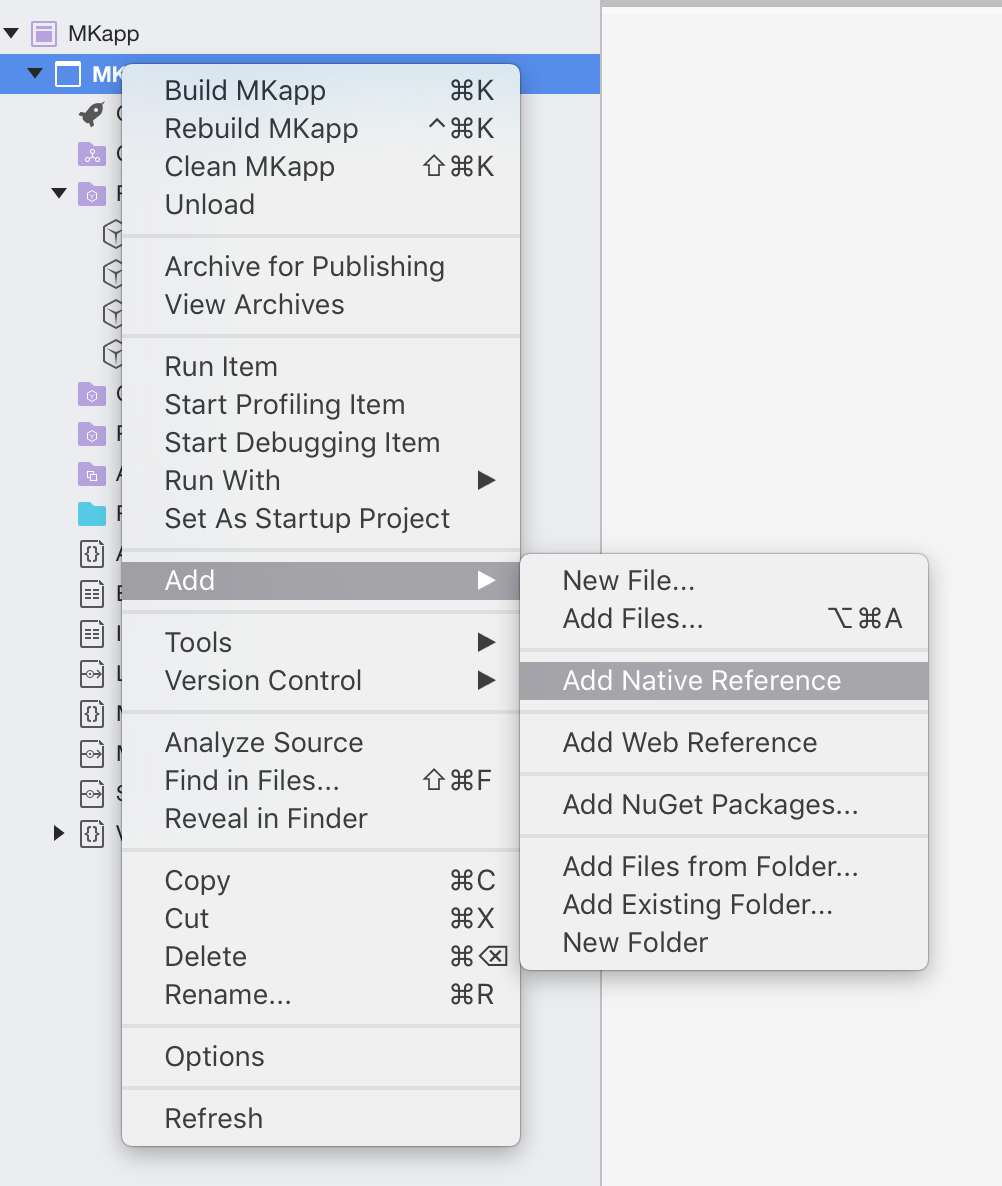Note
Access to this page requires authorization. You can try signing in or changing directories.
Access to this page requires authorization. You can try changing directories.
This document describes how application developers can embed user frameworks in their apps.
With iOS 8.0 Apple made it possible to create an embedded framework to share code between app extensions and the main app in Xcode.
Xamarin.iOS 9.0 adds support for consuming these embedded frameworks (created with Xcode) in Xamarin.iOS apps. It will not be possible to create embedded frameworks from any type of Xamarin.iOS projects, only consume existing native (Objective-C) frameworks.
There are two ways to consume frameworks in Xamarin.iOS:
Pass the framework to the mtouch tool, by adding the following to the additional mtouch arguments in the project's iOS Build options:
--framework:/Path/To/My.FrameworkThis has to be set for each project configuration.
Add Native References from the context menu
Right-click on Project and Browse to Add Native References

This will work for all configurations.
In future versions of Visual Studio for Mac and the Xamarin Tools for Visual Studio it will be possible to consume frameworks from within the IDE (without editing project files manually).
A few sample projects can be found on github
Limitations
- Embedded frameworks are only supported in Unified projects.
- Embedded frameworks are only supported in projects with a deployment target of at least iOS 8.0.
- If an extension requires an embedded framework, then the container app must also have a reference to the framework, otherwise the framework will not be included in the app bundle.
The Mono runtime
Internally Xamarin.iOS takes advantage of this feature to link with the Mono runtime as a framework, instead of linking the Mono runtime statically into each extension and the container app.
This is automatically done if the container app is a Unified app, it contains extensions and the target deployment is iOS 8.0 or higher.
Apps without extensions will still link with the Mono runtime statically, because there is a size penalty for using a framework if there's only one app referencing it.
This behavior can be overridden by the app developer, by adding the following as an additional mtouch argument in the project's iOS Build options:
--mono:static: Links with the Mono runtime statically.--mono:framework: Links with the Mono runtime as a framework.
One scenario for linking with the Mono runtime as a framework even for apps without extensions is to decrease the executable size, to overcome any size restrictions Apple enforces on the executable. For reference, the Mono runtime adds approximately 1.7MB per architecture (as of Xamarin.iOS 8.12, however his varies between releases, and even between apps). The Mono framework adds approximately 2.3MB per architecture, which means that for a single-architecture app without any extensions, making the app link with the Mono runtime as a framework will shrink the executable by ~1.7MB, but add a ~2.3MB framework, resulting in a ~0.6MB bigger app alltogether.
